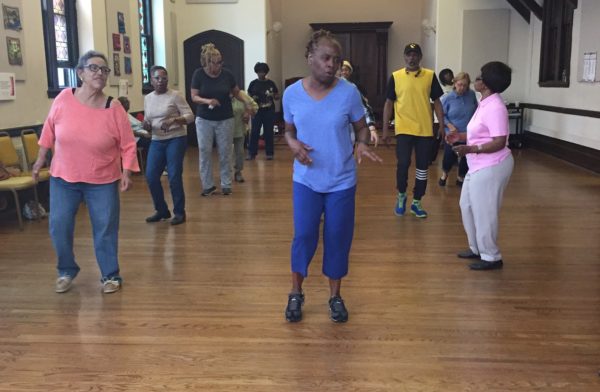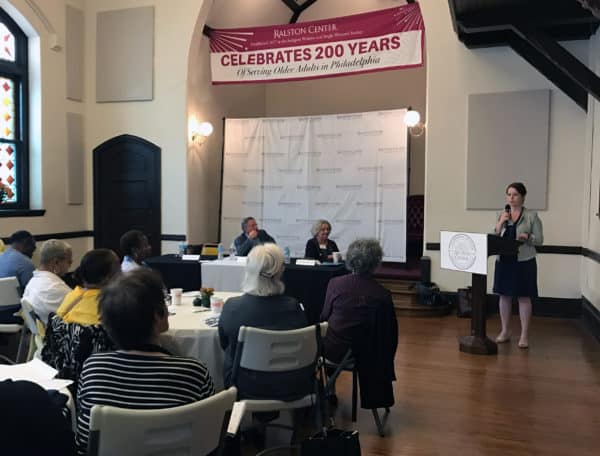
Penn Memory Center Coordinator for Multicultural Recruitment and Retention Karletta Poland (left), PMC Co-Director Jason Karlawish (center left), and PMC ambassador Karen Wheeler (center right) pose with Alpha Phi Alpha brothers after “Alzheimer’s in our Community.”
By Joyce Lee
A recent event co-hosted by the Penn Memory Center and the African-American fraternity Alpha Phi Alpha (APA) called on local communities to address the growing problem of Alzheimer’s disease in the African-American population. The event, titled “Alzheimer’s In Our Community: A Call to Action,” focused on education, training, and research initiatives needed to combat this disease within this demographic group.
APA member Frederick Okoye III pointed out the high mortality rate and prevalence of Alzheimer’s disease as his motivation for hosting the event.
“The most striking statistic for me, however, was the disparity in diagnosis, treatment, and the general knowledge of cognitive impairment in communities of color, particularly African-American communities,” Okoye said.





